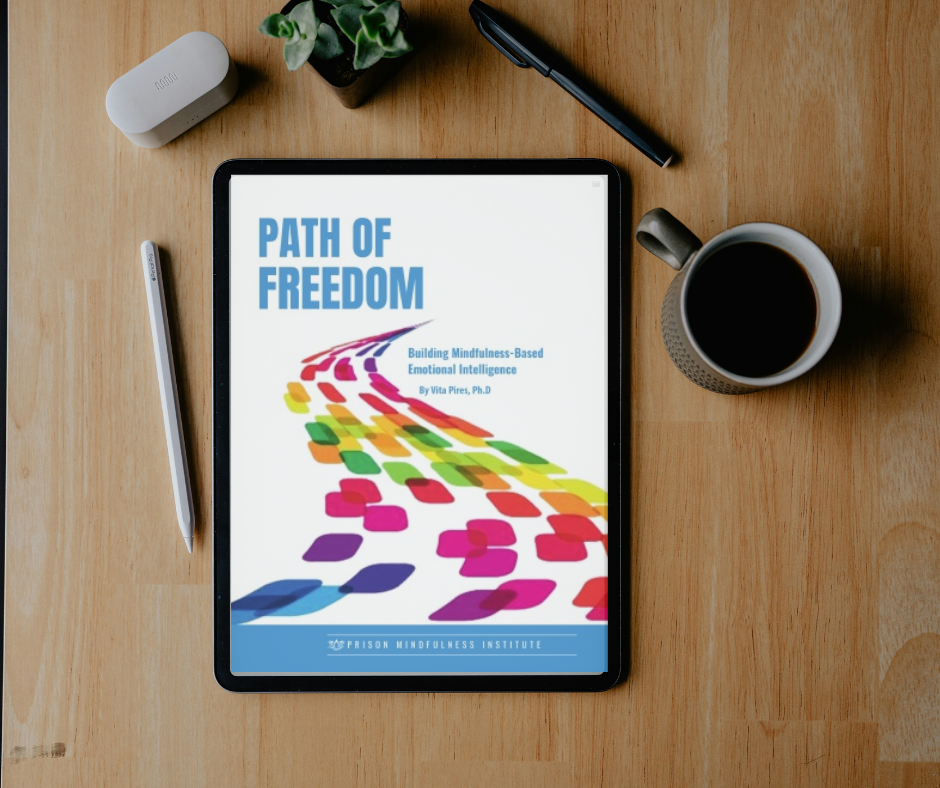One Moment at a Time: Reflections from Inside & The Path of Freedom Approach
- PMI Staff

- Apr 27, 2025
- 3 min read

“When I get out of here, things are gonna be different!”
It’s something many incarcerated people say—sometimes out loud, often quietly to themselves. There’s a yearning to start fresh, leave behind past mistakes, and finally live right. But over time, the deeper question becomes: why wait?
This powerful insight comes from an incarcerated man who shared his reflection. Like many inside, he’s wrestled with regret, disappointment, and the dream of a better future. But something shifted. He realized that life doesn’t begin at the gates—it’s happening right where he is.
“All I have is here and now. The present moment is the only moment when life is available.”
This kind of transformation is at the heart of the Path of Freedom program—our evidence-based mindfulness and emotional intelligence curriculum and program created by Fleet Maull and Kate (Vita) Pires Crisp, Ph.D., executive director of the Prison Mindfulness Institute.
The Origins of the Path of Freedom
Drawing on over two decades of mindfulness practice and direct experience teaching in correctional settings, Pires-Crisp developed the Path of Freedom (PoF) in 2005. The curriculum was designed to address the unique challenges of incarcerated people while fostering deep inner transformation. It integrates mindfulness training with:
Social-Emotional Learning (SEL)
Emotional intelligence
Embodied awareness
The program was piloted for five years in a maximum-security juvenile facility and an adult jail in Colorado and has since been implemented across multiple facilities around the world, with consistently positive feedback and results.
Addressing Criminogenic Risk Factors
The Path of Freedom is not simply a mindfulness class—it is a comprehensive change program aimed at addressing the core risk factors that contribute to criminal behavior and recidivism:
Anti-Social Personality - PoF supports deep personal transformation by cultivating self-empathy, compassion, and the tools to disrupt reactive and harmful patterns.
Antisocial Attitudes and Values—Participants are invited to examine their beliefs and values, often shaped by trauma and survival, and explore how more relational, responsible, and empathic values can lead to greater life success.
Anti-Social Associates - Through group dialogue, circle practice, and peer support, PoF creates a pro-social learning environment where participants build healthy relationships and a sense of community.
Family Dysfunction - Skills such as setting boundaries, practicing forgiveness, and communicating mindfully support healing in family systems and reduce the likelihood of repeating past cycles.
Poor Self-Control / Problem-Solving Skills - Mindfulness practice enhances impulse control and emotion regulation. Combined with SEL tools, participants learn practical ways to respond rather than react, choosing clarity over chaos.
Substance Abuse - PoF addresses the roots of addiction—neurologically and psychosocially—while helping participants develop the resilience needed to maintain recovery. Pilot studies and participant feedback show strong results in this area.
Lack of Employment Skills—While not vocational training, PoF equips participants with the internal resources and communication skills essential to workplace success. It has been successfully integrated into employment reentry programs in Boston-based agencies such as St. Francis House, Haley House, and Pine Street Inn.
Why It Matters
Returning to the reflection from our participant:
“Freedom has little to do with where my physical body may happen to be; it’s a state of mind.”
This is the essence of what the Path of Freedom offers—not escape from prison, but freedom within it. It provides the tools to live with awareness, agency, and compassion now. It allows one to find peace, not after parole but one moment at a time.
And that’s how transformation begins—right here, right now.




Comments